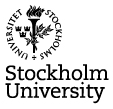Prof. Marten Scheffer on tresholds for catastrophic shifts
Prof. Marten Scheffer will on 4 September 2007 hold the seminar "Thresholds for catastrophic shifts in nature and society".
However, studies on lakes, coral reefs, oceans, forests and arid lands have shown that smooth change can sometimes be interrupted by sudden drastic switches to a contrasting state. Similar dramatic shifts punctuating longer quiet periods have occurred in the earth´s climate system and are common in the dynamics of human societies.
It is becoming clear that such shifts may often correspond to a phenomenon that is known in mathematical terms as a ‘catastrophic bifurcation´. This has farreaching implications. For instance, they can appear without obvious early warning signals, and the resulting change can be difficult to reverse.
Understanding how such transitions come about in complex systems such as human societies, ecosystems and the climate system is a major challenge. However, in a time where pressures on such systems steadily increase, insight the mechanisms for catastrophic shifts may help predicting such transitions, or even managing systems for enhanced resilience against unwanted shifts.
About Marten Scheffer
Prof. Marten Scheffer works at Aquatic Ecology and Water Quality Management Group, Environmental Sciences department, Wageningen University, The Netherlands.
Scheffer is interested in unravelling the mechanisms that determine the stability and resilience of complex systems.
Much of his work has focused on the ecosystems of lakes, but he has also worked with a range of scientists from other disciplines to address issues like: the feedback between atmospheric carbon and the earth temperature, the collapse of ancient societies, inertia and shifts in public opinion and the balance of facilitation and competition in plant communities.
He is member of two editorial boards and wrote numerous scientific papers, two scientific books, and a popular science book. Scheffer is at the Scientific Boards of the Resilience Alliance and the European Santa Fe institute ‘Para Limens´.
He received several awards, but is most proud of the 2004 Sustainability Science Award from the Ecological Society of America for the peer reviewed paper published in the past five years that makes the greatest contribution to the emerging science of ecosystem and regional sustainability through the integration of ecological and social sciences (for a 2001 Nature paper).

Time and place
Place: Linné Hall, the Royal Swedish Academy of Sciences, Lilla Frescativägen 4, Stockholm
Vacancies | Contact | Environmental policy | Cookies
Stockholm Resilience Centre
Stockholm University, Kräftriket 2B | Phone: +46 8 674 70 70 | info@stockholmresilience.su.se
Organisation number: 202100-3062 | VAT No: SE202100306201


